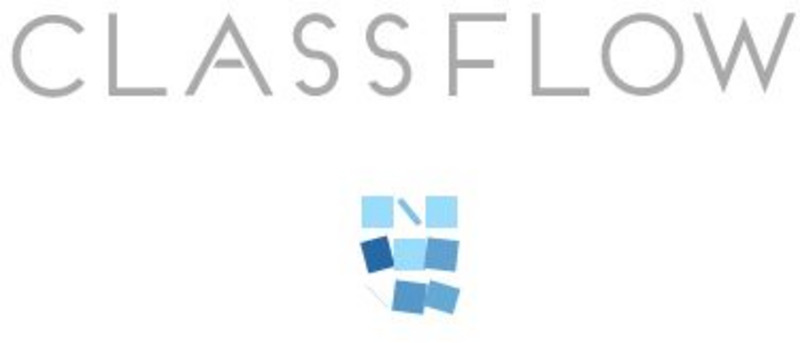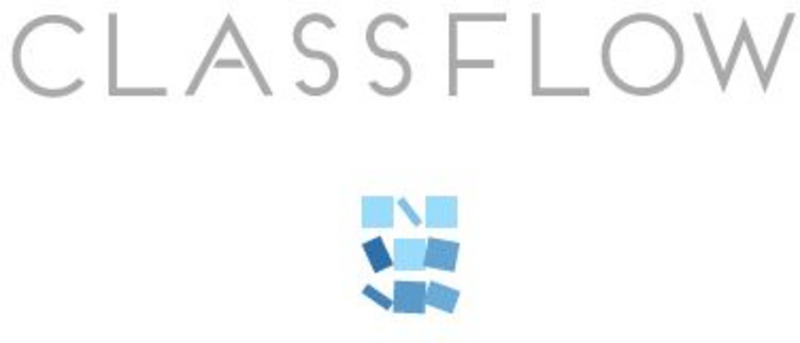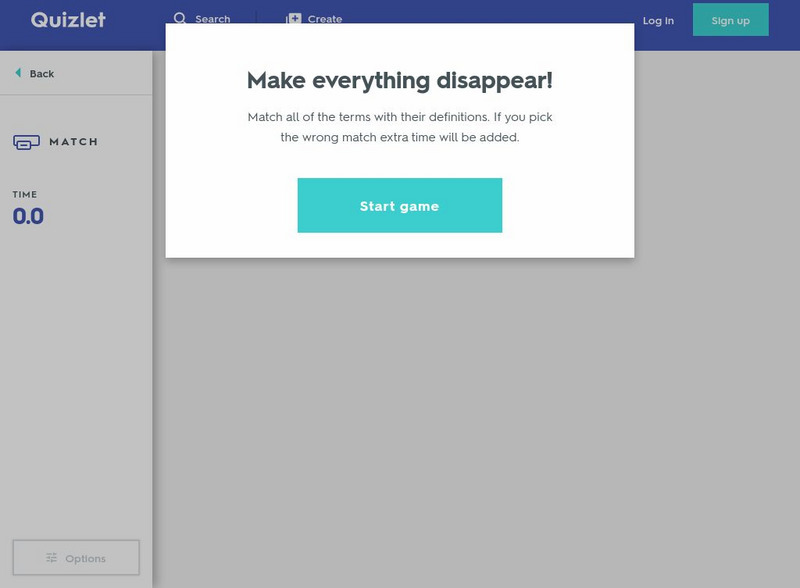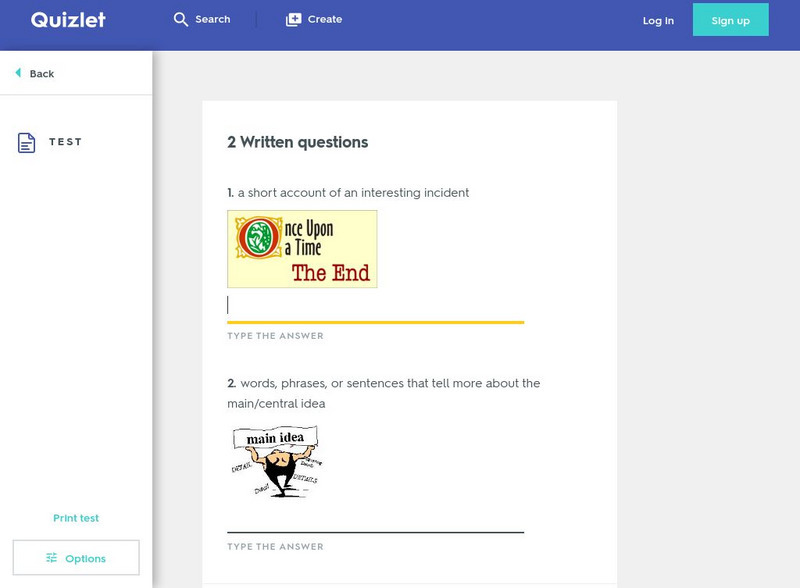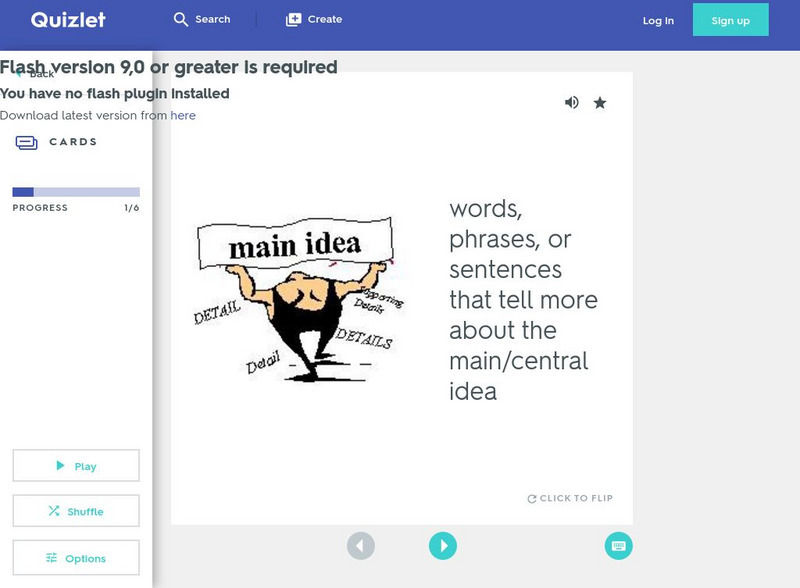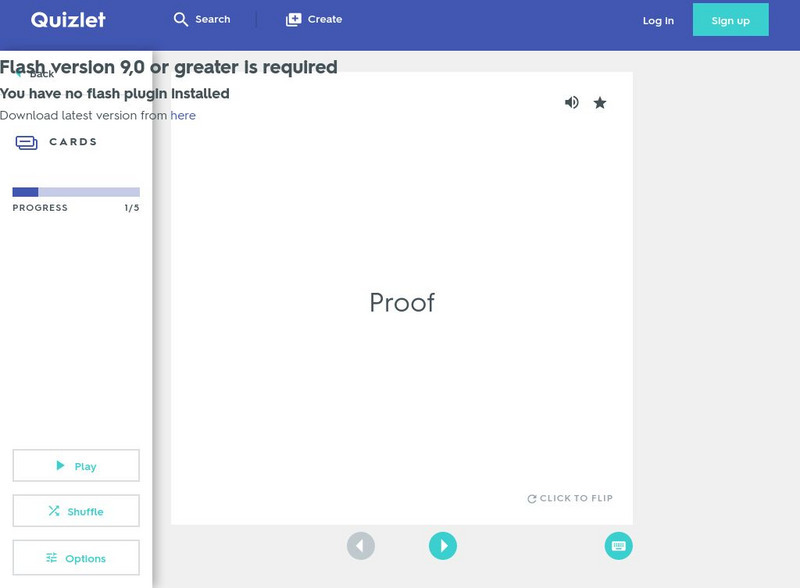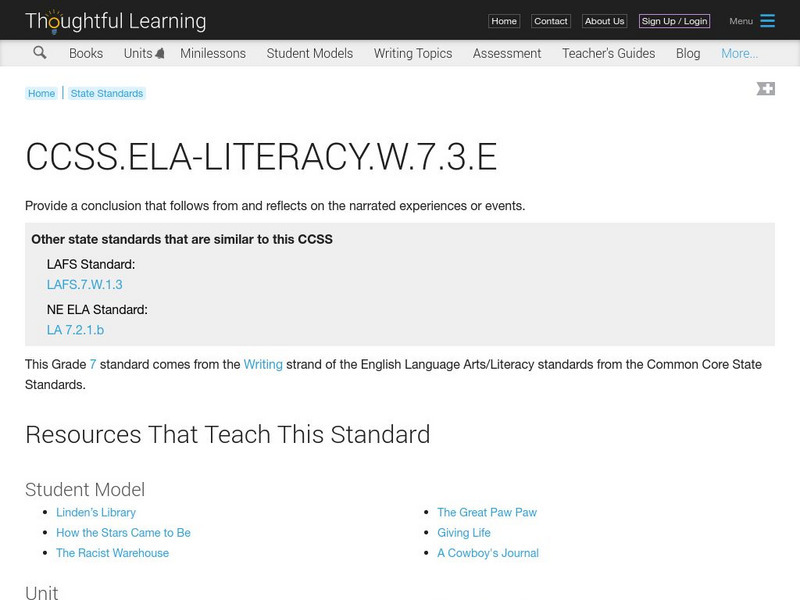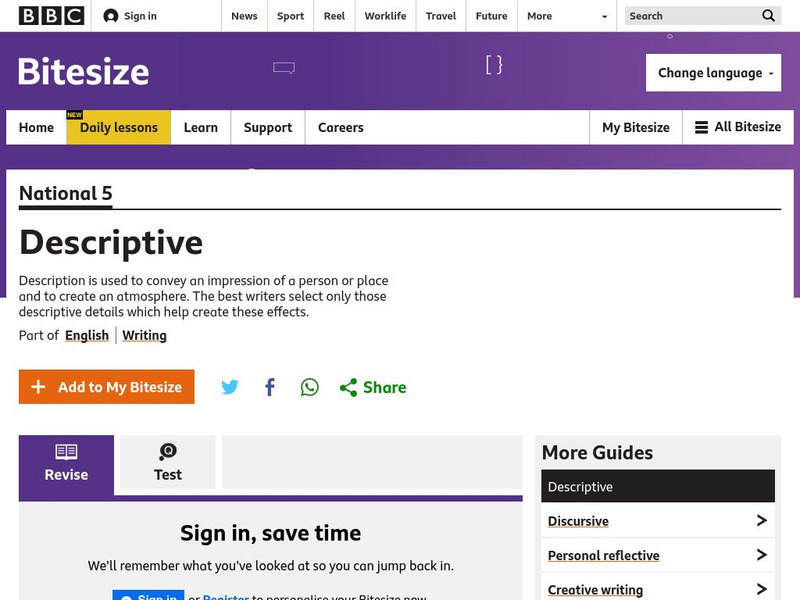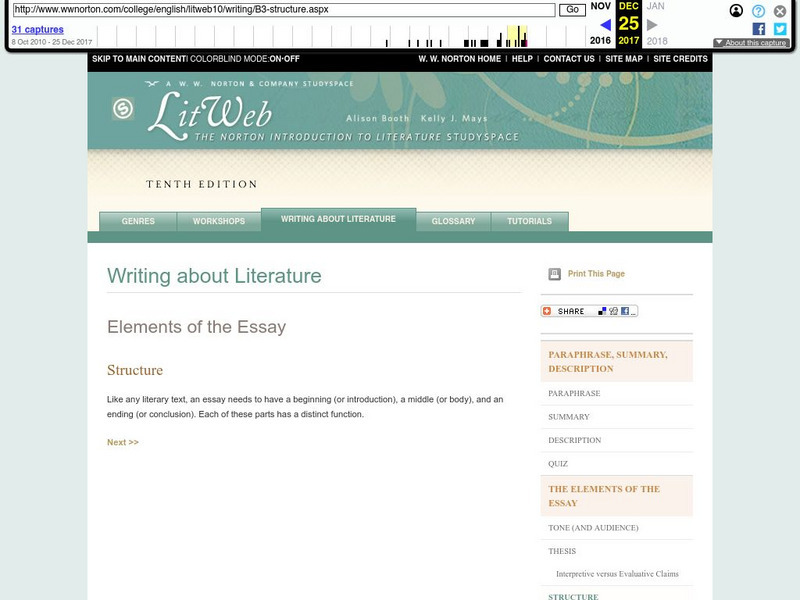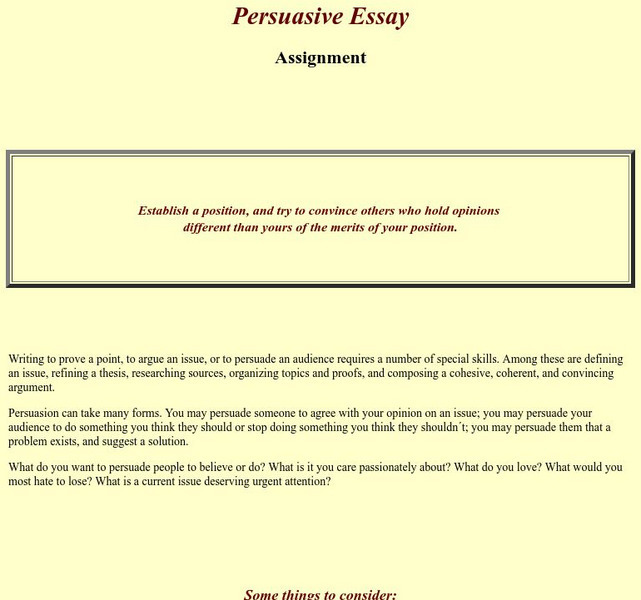ClassFlow
Class Flow: Note Taking for Social Studies
[Free Registration/Login Required] This flipchart covers how to read a historical text and convert information into visual representations by taking notes. This strategy helps students to read a passage and determine the author's purpose.
ClassFlow
Class Flow: Writing Organization
[Free Registration/Login Required] This flipchart discusses writing organization and how the organization of a written work varies based on the type of work it is. Assessment questions follow the lesson. L.9-10.3 knowledge of lang
ClassFlow
Class Flow: Writing Review
[Free Registration/Login Required] In this flipchart students will interactively review the following areas of writing: parts of a paragraph; unity, coherence, and elaboration; and the 4 types of writing.
ClassFlow
Class Flow: Leads
[Free Registration/Login Required] Students will learn about different types of leads for stories. This interactive flipchart has examples of leads, Activote assessment, and activities for students to work on independently or in groups....
ClassFlow
Class Flow: Leads Part Ii
[Free Registration/Login Required] Students will recognize different types of leads and will choose which leads best fit different pieces of writing. This is a part of the process of organizing and revising a piece of writing.
BBC
Bbc Bitesize Revision: Observation
As part of a revision and writing section of BBC Bitesize, this site goes over several tips of general advice to keep in mind when writing about observations (as part of descriptive writing).
Quizlet
Quizlet: Making Inferences (Nonfiction)
Match five words and definitions about making inferences in nonfiction texts by racing against the clock in this learning game.
Quizlet
Quizlet: Making Inferences (Nonfiction)
Build your nonfiction inference vocabulary by interacting with terms like lesson, data, schema, sources, and more. Choose to view flashcards, complete learning and spelling exercises, take a test, or play a matching or gravity game.
Quizlet
Quizlet: Types of Supporting Details: Definitions: Learn
This interactive helps students learn the types of supporting details by having them type in the terms that fit the definitions.
Quizlet
Quizlet: Types of Supporting Details: Definitions: Flashcards
This interactive set of flashcards focuses on the definitions for types of supporting details such as statements of fact, expert testimony, first-hand accounts, personal experiences, statistics, analogies, etc.
Quizlet
Quizlet: Types of Details: Test
This interactive quiz features six multiple-choice questions about types of details and their definitions.
Quizlet
Quizlet: Types of Details: Match
In this interactive game, students match the words having to do with types of details to their definitions.
Quizlet
Quizlet: Types of Details: Learn
In this interactive focusing on learning types of details, students type in the word to match the definition given.
Quizlet
Quizlet: Types of Details: Flashcards
This is a set of interactive flashcards defining words that have to do with details in writing: supporting details, facts, opinion, examples, anecdotes, and statistics.
Quizlet
Quizlet: Flashcards 8th Grade Evidence/inference
This set of interactive flashcards focuses on terms having to do with evidence and inference-related definitions. These terms include the following: evidence, analysis, inferences, explicit, and imply.
Other
Thoughtful Learning: ccss.ela literacy.w.7.3.e
Choose a lesson or unit to teach how to write a conclusion to a narrative that reflects on the narrated experience.
BBC
Bbc Bitesize Revision: Describing Scenes
As part of a revision and writing section of BBC Bitesize focusing on specific forms of writing, this site discusses describing scenes as a type of descriptive writing. W.9-10.3d Precise/sensory details
W. W. Norton
W.w. Norton & Company: Elements of the Essay: Structure
Click through an overview of how to structure an essay, including the introduction, body, and conclusion. Use the list on the right side to learn all of the elements of an essay.
Other
Academic Help: Writing Samples: Expository Essay Samples
Links to several examples of expository essays in order to better understand the process and end result of a well written expository essay.
Online Writing Lab at Purdue University
Purdue University Owl: Writing an Outline
Check out two outlining links under the heading "Invention/Planning." "Developing an Outline" shows how to use different organizational principles. Sample outline shows a complete outline for a paper, including thesis statement and...
Other
English 100: Persuasive Essay
This tutorial provides writing instructions and ideas to help the student in preparing a persuasive essay.


